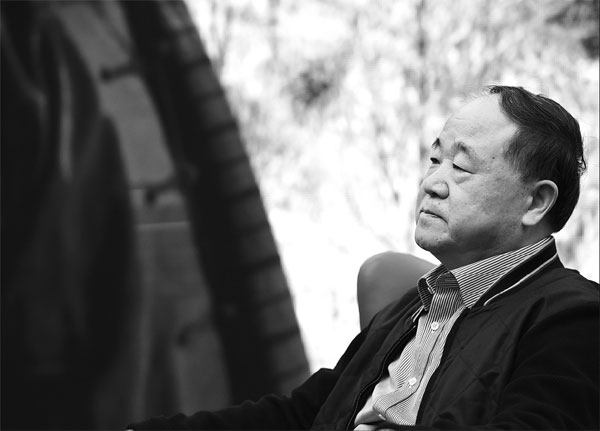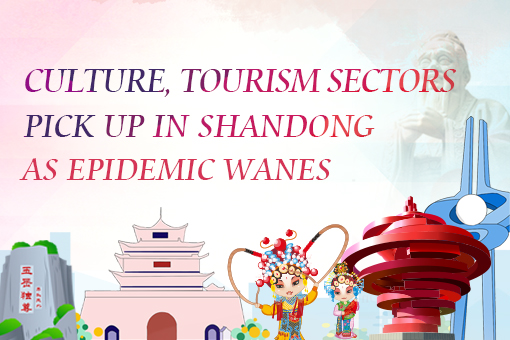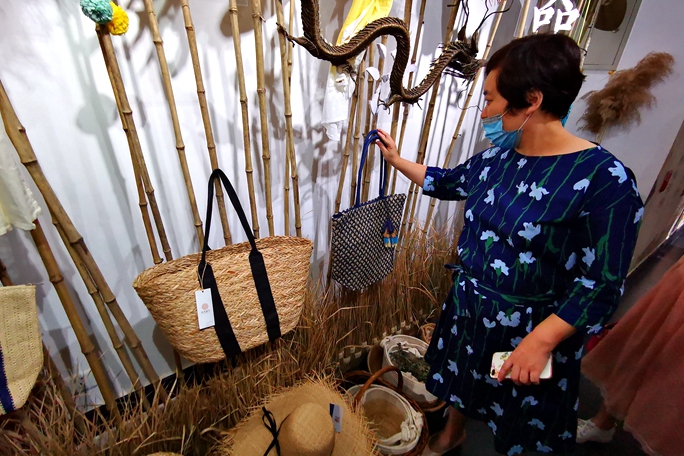Humble roots form Nobel ideas
Mo Yan's rural upbringing has informed much of his literary oeuvre. In a recent interview with Gong Ziming, he discusses his journey and pursuit of inspiration.
As the winner of the 2012 Nobel Prize in literature, Mo Yan has been hailed as a writer "who, with hallucinatory realism, merges folk tales, history and the contemporary". From his early novel, Red Sorghum, and the avant-garde works, Life and Death Are Wearing Me Out and Frog, to his latest traditional Chinese opera composition, Jin Yi, and a collection of poems, Qi Xing Yao Wo (Seven Stars Shine on Me), the works of Mo Yan depict a world that's both familiar and strange to us. In his literary creations, we see a world where animals, great and small, as well as people, display various personalities and drive a narrative.
His work is deeply rooted in the earth and is full of vigor and tenacity, and he talks about how his hometown, Dongbei township in Gaomi county in East China's Shandong province - which he describes as being "as large as a stamp" - has nourished his spiritual world.
|
Mo Yan attends a reading forum in Shenzhen. Provided to China Daily |
Question: You have said that your hometown is the soul of your novels, and that the land and rivers, crops and trees, birds and animals, myths and legends, demons and ghosts, benefactors and enemies in your hometown are all source materials of your works. When and how did you start to include these elements in your writing?
Answer: I personally believe that Yasunari Kawabata's novels had a great impact on contemporary Chinese writers. I've read The Dancing Girl of Izu and Snow Country, and one of my short novels titled White Dog and Swing Frame was inspired by a line in that book.
The line depicts a strong black Akita squatting on a rock licking hot water from a pool. I envisioned a vivid picture: a snow-covered street, a steaming pool beside the street and a big black dog with its tongue sticking out. This is not only a picture but also a melody, a tone, a perspective of description and the start of a novel. I was very excited - it felt like the touch of a girl that I long admired. I suddenly realized what my novel was and what and how I should write it. Before that, I was troubled, unable to find suitable stories or my own voice. This line in Yasunari's novel was like a lighthouse in the darkness, illuminating my path.
I put the book down and began writing lines, such as "Dongbei township in Gaomi is home to a kind of meek white dog, but a purebred one is very hard to find after generations of breeding". It was the first time for "Dongbei township in Gaomi" to appear in my work. The novel White Dog and Swing Frame was later translated into multiple languages. Ever since, I've held the banner of "Dongbei township in Gaomi" like a grassroots hero, beginning the construction of my literary world.
Before that, or before I read about the Akita, I was not able to find inspiration. I followed the guidance in textbooks, and experienced life in the countryside and factories. However, even after I came back, I could still not think of what to write about. Akita made me realize that a dog could be the subject, and so could the hot water. Ever since, I have never worried about finding sources for my novels.
Whenever I was writing a book, the next was like a cackling hen right behind me. In the past, it was me writing the novels. However, it later became the novels writing me, and I became a slave to them.
Q: Some people say you have "the ambition of a dramatist", and that you have brought the nostalgia, life experience and stories of common people into drama, thus developing an experimental field for the integration of Chinese opera, tradition and folk culture. Do you enjoy working in this "experimental field", which features sharp conflicts, more than writing novels?
A: Folk operas have had a significant influence on me. It's known that there are four treasures in Gaomi: Paper-cuts, clay sculptures, Lunar New Year's pictures and the local opera form, Maoqiang. When I was little, we didn't have a television, and it was also difficult to see films, so my main source of visual entertainment were the performances of Maoqiang on stages in countryside squares and at fairs.
Therefore, I'm familiar with - and have an emotional bond to - folk operas and stages in villages. Also, I had always thought I should make use of the folk operas that I know so well about in my novels, so from that came the Sandalwood Death. In a sense, it's actually a traditional Chinese opera in the form of a novel - or a novel with a great number of operatic elements. The characters in Sandalwood Death are highly formulaic, just like those in traditional Chinese operas, and the relationships among the characters are full of drama.
Chinese farmers usually begin to enjoy dramas before they start to read novels, so dramas have a far more profound influence on them than books. Back in the early 20th century, most people in rural areas of China couldn't read due to illiteracy. The cultural education that they got at the time came from dramas.
That's why, back then, political activists like Chen Duxiu and Liang Qichao made considerable efforts to study how to reform dramas.
They wanted to use drama as an effective tool to enlighten people and develop their intelligence. Dramas were the teaching materials of the Chinese, while the stage was an open classroom. Basically, the rural people of China got all their knowledge of history, morality and values from watching dramas. That's why I've always paid great attention to them.
Jin Yi was a literary work of traditional Chinese opera that I created independently. I call it a literary work of traditional Chinese opera because it was not a standard script for performance. It was my way of showing respect to the folk arts, and I hoped that it would help me broaden the domain of my artistic creation.
As a novelist, I think I ought to know more about other forms of arts, especially things like traditional Chinese opera and folk arts like quyi, which is typically about language. The performances of various artistic forms of quyi are usually attractive because they are vivid, humorous, mischievous and pleasant to the ear. I think good novels should also be readable with a rhythm. To that end, I think a novelist learns from such forms of art as quyi and traditional Chinese opera.
Q: In modern society, nostalgia has become a common emotion. We can see that in your novels - despite the subject's specific time, space or abstract culture - they are all from your real native soil. How do you view the connections among modern society, modern technology, your native land and literature?
A: I have read poems written by robots that were imitations of Tang poetry. Technically speaking, what the robots wrote completely met the requirement for the rhymes. There was nothing wrong with tones and patterns.
However, the poetry itself was emotionless and lacked personality. I'm a conservative person, and it seems to me that work produced in this way is not real literature.
I have said before that, driven by capital and profit, science has mutated. Its unhealthy development not only does harm to humans but also causes a huge waste of resources. I feel that the biggest danger facing mankind today is the combination of increasingly advanced technology and our growing avarice. Technology, fueled by greed and profit, has already deviated from its original purpose to serve the healthy needs of the human race. Now, it indeed serves the sick needs of some of the rich.
We need to tell people through our literature that we do not have to develop at a mind-blowing speed. There is no need to accelerate the growth of animals and vegetables for food, since they may lose their original taste and nutrition, as well as contain growth hormones and other poisons as a result.
We need to push the message through our work that we can slow down and save more for future generations - that it only takes air, sunshine, food and water to sustain life, and other things are luxuries for us. The good times ahead of us are countable. When people are trapped in a desert, they will realize that water and food are more precious than gold and diamonds.
And people will see that mansions and villas, no matter how fancy, are not able to resist the overwhelming power of nature when earthquakes and tsunamis occur.
Countries, nations, stocks and everything else will all lose their meaning when human activities deplete the Earth. And, of course, so would literature.
Will our writing help to make humans less greedy? I cannot see the silver lining here. Nevertheless, we should not stop trying.
The author is a grade 11 student from Beijing National Day School and author of On the Way to Salai.
(China Daily 04/04/2019 page15)


 Shandong Culture and Tourism Consumption Season
Shandong Culture and Tourism Consumption Season Culture, tourism sectors pick up in Shandong as epidemic wanes
Culture, tourism sectors pick up in Shandong as epidemic wanes

